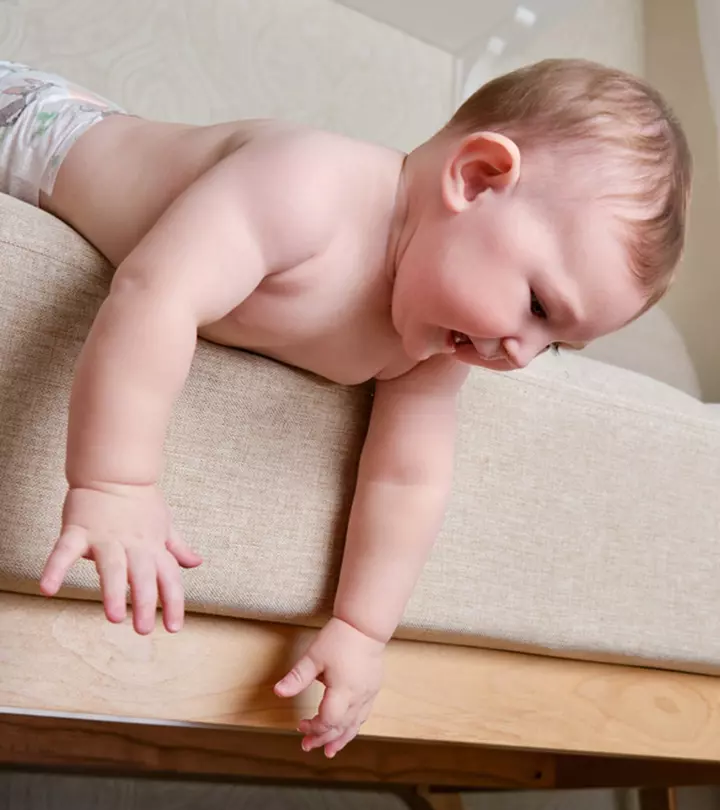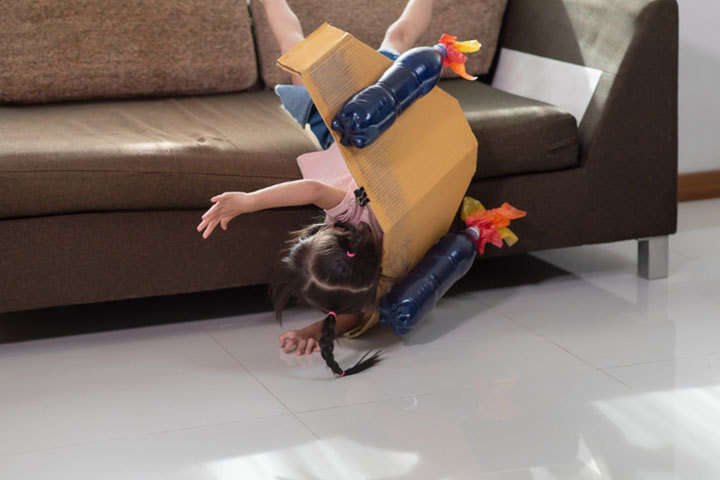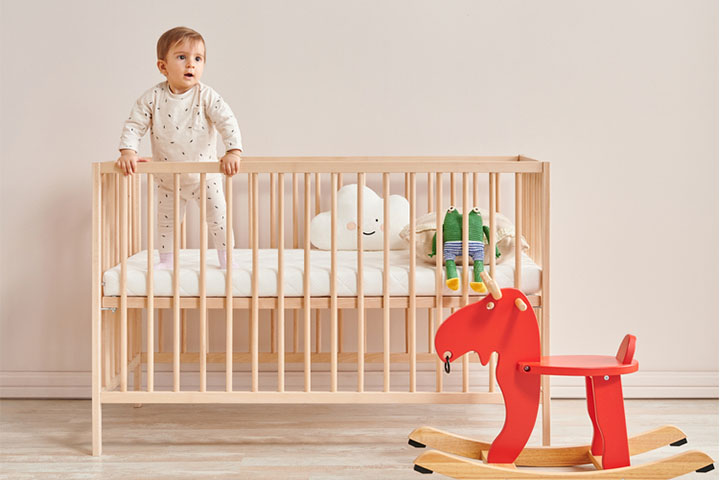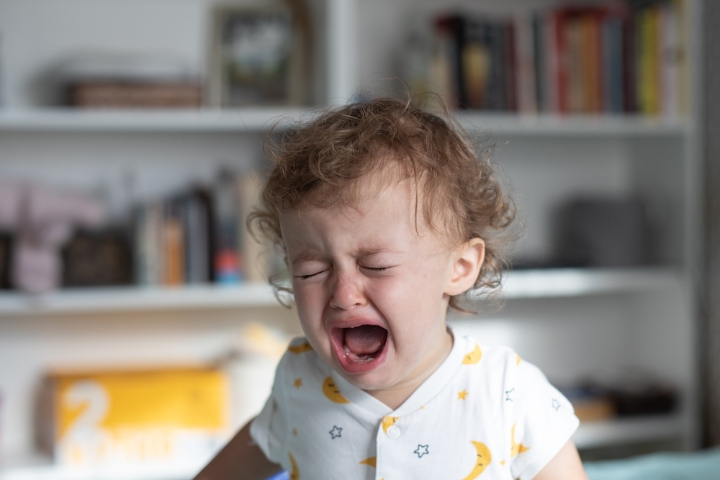
Image: Shutterstock
As a loving and attentive parent, there’s nothing more alarming than witnessing your baby tumble off the bed or couch. The moment can be filled with fear and anxiety, but it’s crucial to stay calm and take immediate action to ensure your baby’s safety and well-being. In this article, we will guide you through the steps you should take if your little one experiences a fall. Remember, consulting a healthcare professional is always recommended to assess any potential injuries. Let’s dive in and equip ourselves with the knowledge to handle these situations with confidence and care.
1. Stay Calm And Assess The Situation
Amidst the panic, it’s vital to stay composed. Take a deep breath and quickly assess the situation. Gently pick up your baby and place them on a safe surface away from the edge of the bed or couch. Stay close, offer soothing words, and provide gentle touches to reassure them. Your calm presence and comforting gestures will help create a sense of security for your baby during this unsettling time.
2. Observe For Immediate Signs Of Distress
Image: Shutterstock
Once your baby is in a safe position, carefully observe them for any signs of distress or injury. Look for changes in behavior, unusual crying, or visible injuries like bleeding or swelling. While it’s natural to worry, most falls from low heights don’t cause serious harm. Stay attentive and trust your instincts, but also remember that babies are resilient and can often bounce back from minor accidents.
3. Comfort And Reassure Your Baby
Additionally, try distracting your baby with their favorite toys or engaging in a calming activity such as singing a lullaby or gentle rocking. These comforting measures can help redirect their attention and provide a sense of familiarity and relaxation. Remember, your loving response in these moments of distress can have a lasting impact on your baby’s emotional well-being and resilience.
4. Watch For Delayed Symptoms
Image: Shutterstock
Even if your baby seems fine immediately after the fall, it’s crucial to monitor them closely for the next 24 hours. Keep an eye out for any delayed symptoms that may indicate an underlying issue, such as excessive sleepiness, vomiting, or unusual behavior. If you notice anything concerning, contact your pediatrician for guidance.
5. Check For Visible Injuries
After a fall, gently examine your baby’s body for any cuts, bruises, or bumps. Pay special attention to their head, neck, and limbs, as these areas are more prone to injury. If you notice any swelling, use a cold compress wrapped in a cloth to help reduce it (1). Be vigilant for any concerning symptoms or signs of discomfort and seek medical attention if necessary. Your attentive examination and timely response are essential for your baby’s well-being.
6. Childproof Your Home
Image: Shutterstock
Prevention is key to avoiding future falls. Take this incident as a reminder to childproof your home thoroughly. Install safety gates, secure furniture to prevent tipping, and cushion sharp edges. As your baby grows more mobile, remain vigilant and take proactive measures to create a safe environment for exploration.
Along with responding to a fall, it’s crucial to take preventative measures to minimize the risk of future accidents. Securely fasten safety gates at the top and bottom of staircases, install window guards to prevent falls, and use corner protectors on furniture with sharp edges. Additionally, never leave your baby unattended on a bed or couch, especially when they become more mobile.
7. Seek Medical Attention If Necessary
If your baby exhibits severe distress, loss of consciousness, seizures, difficulty breathing, or other alarming symptoms, act swiftly and seek urgent medical help. Trust your instincts as a parent and contact emergency services or visit the nearest emergency room without delay. Your prompt response is vital for ensuring your baby’s well-being and receiving the necessary medical care they may require.
8. Educate Yourself
Image: Shutterstock
Take the time to educate yourself on infant first aid and CPR. Knowing these lifesaving techniques can provide you with the confidence and skills to respond effectively in case of an emergency. Consider enrolling in a certified infant CPR course or joining local parenting groups that offer workshops on child safety and first aid.
9. Stay Connected
Build a support network of other parents who can offer advice, share experiences, and provide reassurance. Join parenting forums, attend local parent groups, or connect with other caregivers in your community. Having a support system can be invaluable in navigating the challenges of parenting and can provide an outlet for discussing concerns or seeking guidance.
Experiencing a fall can be a frightening experience for both you and your baby, but by staying calm and taking the necessary steps, you can ensure their safety and well-being. Remember to assess the situation, provide comfort and reassurance, monitor for delayed symptoms, and seek medical attention if needed. Childproofing your home and remaining vigilant are essential in preventing future incidents. Your quick thinking and care will help your baby recover and continue their journey of growth and exploration with confidence and resilience. Happy parenting!
















